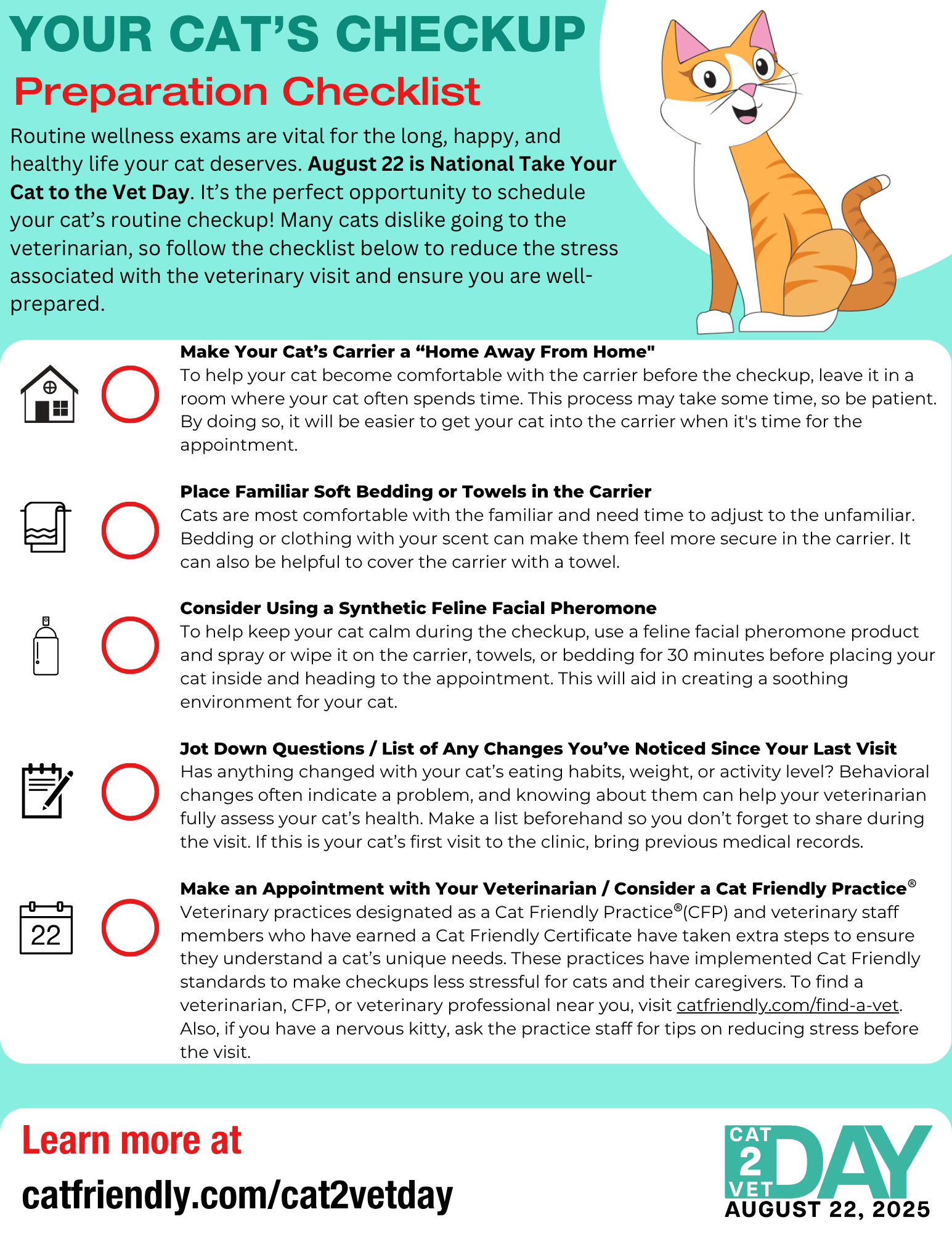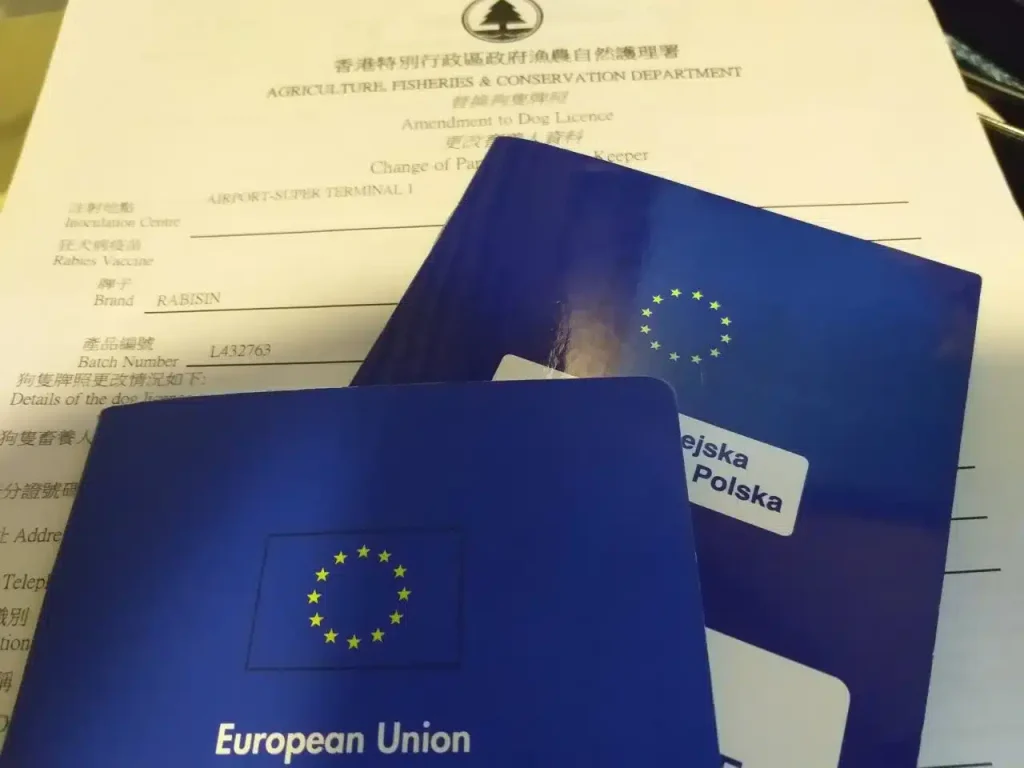Are you planning to travel with your cat or need to meet specific health requirements? Getting a health certificate for your cat is an important step that can save you from unexpected hassles.
But how do you get one, and what exactly does it involve? You’ll discover simple, clear steps to secure a health certificate quickly and easily. By the end, you’ll feel confident and prepared to handle the process without stress. Keep reading to learn everything you need to know to keep your furry friend safe and compliant.

Credit: www.goodshepherd-hs.org
Reasons For A Cat Health Certificate
A health certificate for a cat shows the pet is healthy. It is a document from a vet after a checkup. This certificate is needed for many reasons.
The certificate helps prove your cat is free from diseases. It is important for travel, adoption, and staying at a boarding place.
Travel Requirements
Many airlines and countries require a health certificate for cats. This certificate shows your cat is healthy and fit to travel. It includes proof of vaccinations and no signs of illness.
Without this certificate, your cat may not be allowed on the plane or into another country. The certificate must be recent, usually within 10 days before travel.
- Proof of rabies vaccination
- General health checkup
- No contagious diseases
- Vet’s signature and date
Adoption And Sale
A health certificate helps when adopting or selling a cat. It shows the cat is healthy and has no known health problems. Buyers or adopters feel more confident with this proof.
The certificate may include vaccination records and parasite control. It protects both the cat and the new owner from health risks.
- Proof of vaccinations
- Parasite treatments
- Health status details
- Vet’s approval
Boarding And Daycare
Boarding centers and daycare facilities often require a health certificate. This helps protect other animals from illness. It also shows your cat is up to date on vaccines.
The certificate proves your cat is safe to be around other pets. It usually must be recent and include proof of rabies and other shots.
- Recent health check
- Vaccination proof
- Parasite control confirmation
- Vet’s signature
Choosing The Right Veterinarian
Getting a health certificate for your cat requires a trusted veterinarian. The right vet ensures your cat is healthy and the certificate is valid.
Picking the right professional helps avoid delays and extra costs. It also makes the process smooth and stress-free for you and your cat.
Licensed And Certified Clinics
Only choose clinics that have proper licenses and certifications. These prove the clinic meets health and safety standards.
- Check if the clinic is registered with local veterinary boards.
- Verify that the clinic has up-to-date certifications.
- Ask if the staff includes licensed veterinarians.
- Confirm the clinic can issue official health certificates.
Experience With Cat Health Certificates
Experience matters when it comes to health certificates. Vets familiar with the process can help you avoid mistakes.
| Clinic Name | Years Issuing Certificates | Cat Health Specialization |
| Greenwood Vet Clinic | 10 | Yes |
| City Animal Hospital | 5 | Yes |
| Happy Paws Vet Center | 3 | No |
Preparing Your Cat For The Vet Visit
Getting a health certificate for your cat needs a vet check. Preparing your cat helps the visit go smoothly.
Proper preparation reduces stress for you and your cat. It also ensures the vet has all needed information.
Gathering Medical Records
Bring your cat’s medical records to the vet. These include past illnesses, treatments, and any surgeries.
Records help the vet understand your cat’s health history. This ensures accurate assessment for the certificate.
- Vaccination dates
- Previous health issues
- Current medications
- Allergy information
Ensuring Vaccinations Are Up To Date
Check your cat’s vaccination status before the visit. Many health certificates require proof of current shots.
Common vaccines include rabies, feline distemper, and respiratory vaccines. Ask your vet if unsure about any shots.
- Verify last vaccination dates
- Schedule missing vaccines early
- Keep vaccination records handy
- Follow vet advice on boosters
Calming Techniques For Cats
Cats can get scared before a vet visit. Use calming methods to keep your cat relaxed and safe.
Try gentle petting, soft talking, and familiar blankets. These help your cat feel secure during travel and checkup.
- Use a comfortable carrier with familiar bedding
- Play soft music or use calming sprays
- Offer treats to reward calm behavior
- Keep the environment quiet and calm

Credit: www.pdffiller.com
The Examination Process
Getting a health certificate for your cat means a vet must check your cat’s health. The examination process includes several important steps. Each step ensures your cat is healthy and safe to travel or attend events.
This process helps protect other animals and confirms your cat meets health standards.
Physical Health Check
The vet starts with a full physical exam. They check your cat’s eyes, ears, nose, and mouth. The vet listens to the heart and lungs. They also feel the abdomen and limbs for any problems.
This check helps find any signs of illness or injury. It also shows if your cat is strong enough for travel or events.
Vaccination Verification
The vet reviews your cat’s vaccination records. They ensure all needed vaccines are up to date. Common vaccines include rabies and feline distemper.
If any vaccines are missing or expired, the vet may give them during the visit. This step protects your cat and others from disease.
Testing For Diseases
The vet may run tests to check for diseases. Common tests include blood work and parasite checks. These tests detect hidden infections or health issues.
- Blood tests check organ function and infections
- Fecal tests look for worms or parasites
- Specific tests screen for feline leukemia or immunodeficiency
Test results help the vet decide if your cat is healthy enough for a certificate.
Completing The Health Certificate
Getting a health certificate for your cat is essential for travel or adoption. The certificate proves your cat is healthy and free from diseases.
You must fill out the health certificate carefully and correctly. This guide explains the key parts to complete.
Required Information On The Certificate
The health certificate needs detailed information about your cat. This data helps authorities confirm your cat’s health status.
- Cat’s full name and identification number
- Breed and age of the cat
- Vaccination history and dates
- Any recent treatments or medications
- Results of a recent physical exam
- Date of the health check
Veterinarian’s Signature And Stamp
The health certificate must include the veterinarian’s signature and official stamp. This confirms the information is verified by a licensed professional.
| Required Item | Description |
| Signature | Signed by the licensed veterinarian |
| Official Stamp | Veterinarian’s clinic or practice stamp |
| Date | Date when the certificate was signed |

Credit: catfriendly.com
Using The Health Certificate
A health certificate for your cat is a formal document. It shows that your pet is healthy and meets travel or adoption rules.
Knowing how to use this certificate helps avoid delays. It also ensures your cat’s safety and compliance with laws.
When To Present The Certificate
You must present the health certificate in certain situations. These include travel, adoption, or veterinary visits.
- At the airport or border control during travel
- When adopting or selling your cat to another person
- At veterinary clinics if requested for treatment or boarding
- During entry to pet shows or competitions
Validity Period
The health certificate has a limited validity period. This period varies based on local laws and travel rules.
| Country/Region | Validity Length |
| United States | 30 days |
| European Union | 10 days |
| Canada | 14 days |
| Australia | 7 days |
Renewal Process
Renew the health certificate before it expires. This keeps your cat’s paperwork valid for travel or other uses.
- Schedule a check-up with your vet before expiration.
- Request a new health exam and necessary tests.
- Obtain the updated health certificate from your vet.
- Keep a copy of the new certificate for your records.
Common Challenges And Tips
Getting a health certificate for your cat can be tricky. You may face some common problems during the process.
Knowing how to handle these issues can make the process easier and faster for you and your pet.
Dealing With Uncooperative Cats
Cats often get scared at the vet. They may hide, hiss, or try to run away. This can make the exam hard.
Try to keep your cat calm before the visit. Use a familiar blanket or toy in the carrier. Speak softly and gently.
- Visit the vet when your cat is calm and rested
- Bring treats to reward good behavior
- Use a secure, comfortable carrier
- Ask the vet for a quiet room or less crowded time
Handling Certificate Denials
Sometimes vets may deny a health certificate. This can happen if your cat is sick or missing shots.
Make sure your cat has all vaccines and check-ups before the appointment. Ask the vet why the certificate was denied.
- Keep vaccination records updated
- Follow vet advice for any health issues
- Schedule the exam well before travel or event dates
- Request a second opinion if needed
Saving Time And Costs
Getting a health certificate can cost money and take time. Planning ahead helps reduce stress and expenses.
Book appointments early and keep all paperwork ready. This avoids last-minute problems and extra fees.
- Call the vet to ask about fees and documents needed
- Prepare your cat’s health records in advance
- Check if your cat needs special tests or treatments
- Choose a vet close to your home to save travel time
Frequently Asked Questions
What Is A Health Certificate For A Cat?
A health certificate is an official document proving your cat is healthy. It’s required for travel or adoption. A licensed veterinarian issues it after a thorough health check. This certificate ensures your cat meets all health and vaccination requirements.
How Do I Get A Health Certificate For My Cat?
Schedule an appointment with a licensed veterinarian. Bring your cat’s vaccination records and identification. The vet will perform a health exam and check for diseases. If your cat passes, the vet will issue the health certificate.
When Should I Get A Health Certificate For My Cat?
Get the certificate within 10 days before travel or adoption. Many airlines and states require a recent health certificate for cats. This ensures your cat is healthy and meets all travel or legal regulations.
What Information Is Included In A Cat’s Health Certificate?
The certificate includes your cat’s identification, vaccination history, and health status. It confirms your cat is free from contagious diseases. The veterinarian’s signature and date of examination are also present. This document validates your cat’s fitness for travel or adoption.
Conclusion
Getting a health certificate for your cat ensures their well-being. It’s crucial for travel or new adoptions. Visit a vet for a thorough check-up. They assess your cat’s health and vaccination status. This ensures your cat meets all necessary requirements.
Always keep records updated for safety. Simple steps lead to a happy, healthy cat. Keep your furry friend protected and loved. Your cat’s health is worth the effort.
